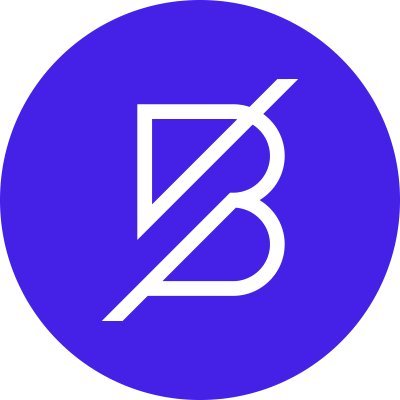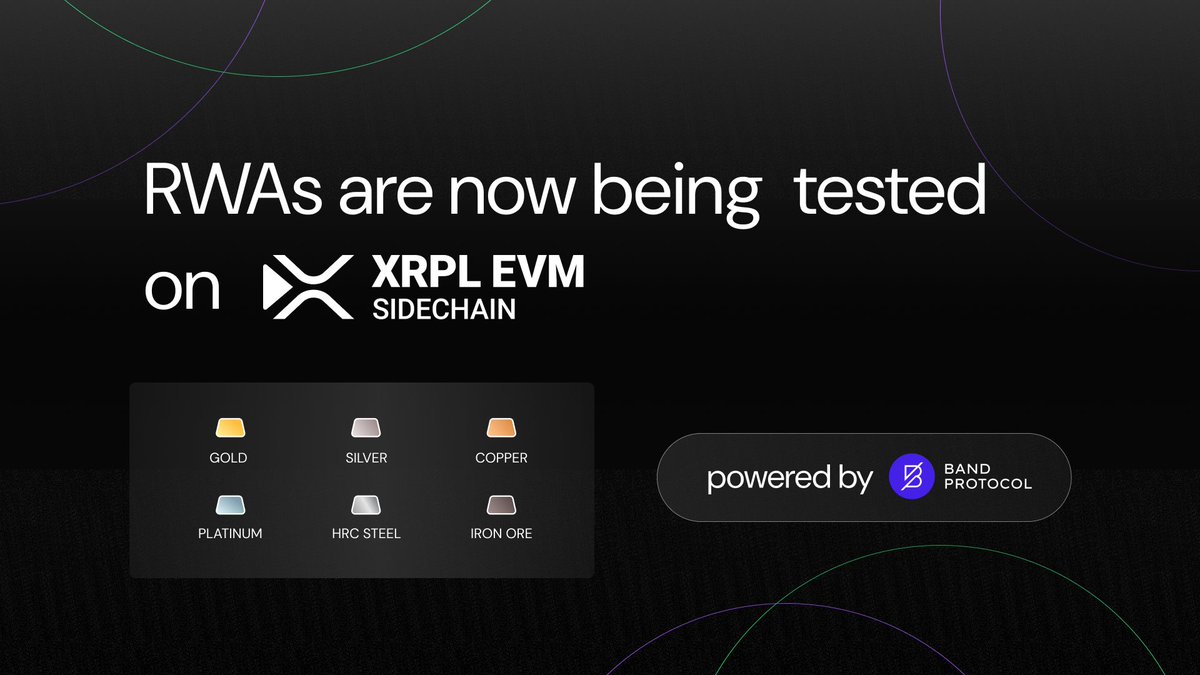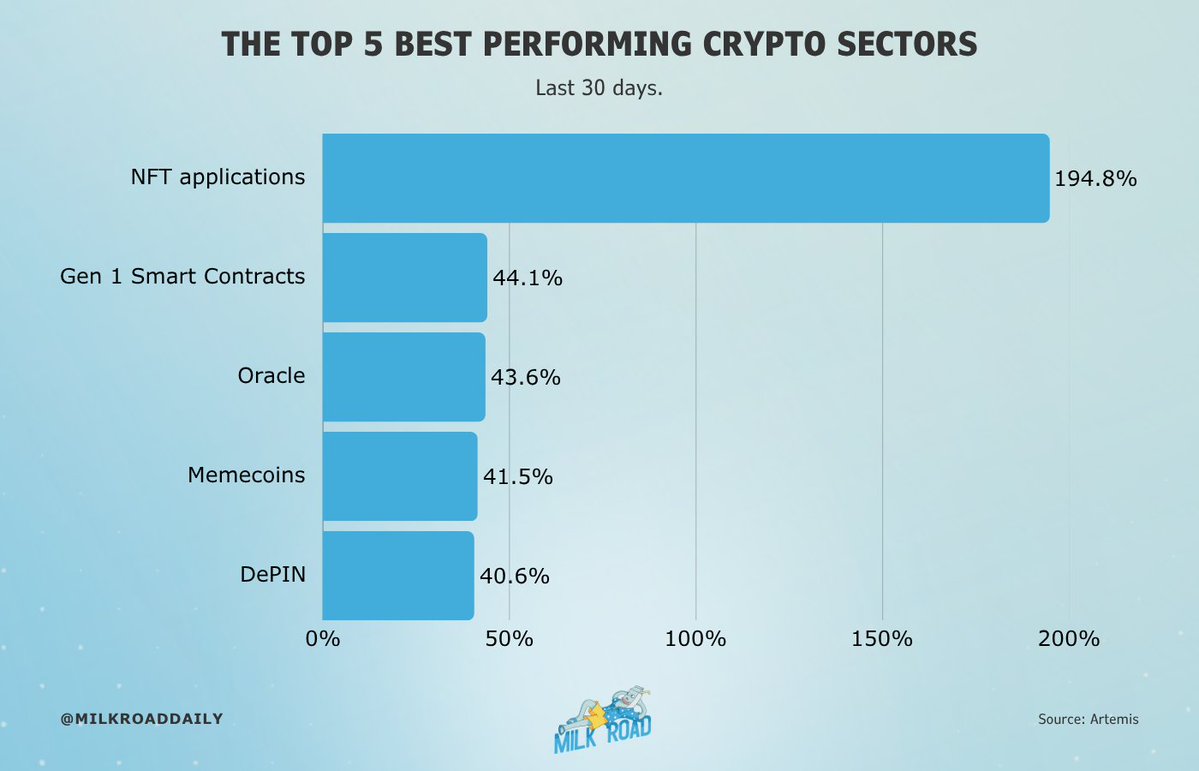Band Protocol price
in USDCheck your spelling or try another.


About Band Protocol
Disclaimer
OKX does not provide investment or asset recommendations. You should carefully consider whether trading or holding digital assets is suitable for you in light of your financial condition. Please consult your legal/tax/investment professional for questions about your specific circumstances. For further details, please refer to our Terms of Use and Risk Warning. By using the third-party website ("TPW"), you accept that any use of the TPW will be subject to and governed by the terms of the TPW. Unless expressly stated in writing, OKX and its affiliates (“OKX”) are not in any way associated with the owner or operator of the TPW. You agree that OKX is not responsible or liable for any loss, damage and any other consequences arising from your use of the TPW. Please be aware that using a TPW may result in a loss or diminution of your assets. Product may not be available in all jurisdictions.
Band Protocol’s price performance
Band Protocol on socials
Guides

Band Protocol FAQ
Band Protocol is a cross-chain oracle platform built on the Cosmos blockchain that allows users to pair on-chain dApps and smart contracts with real-world, off-chain data. At the heart of the ecosystem is its native token, BAND.
Band Protocol allows ecosystem users to seamlessly pair accurate real-world data with decentralized finance (DeFi) applications. This enables the creation of various financial products such as synthetic assets, stablecoins, and loan collateralization solutions. Moreover, Band Protocol serves as a valuable tool for developing dApps and prediction markets, creating identity verification systems, and enhancing the receptiveness of Internet of Things (IoT) devices to real-world insights.
Easily buy BAND tokens on the OKX cryptocurrency platform. OKX’s spot trading terminal offers the BAND/USDT trading pair.
You can also swap your existing cryptocurrencies, including XRP (XRP), Cardano (ADA), Solana (SOL), and Chainlink (LINK), for [Asset] with zero fees and no price slippage by using OKX Convert.
Dive deeper into Band Protocol
Band Protocol (BAND) helps blockchains and projects get access to real-world data via cross-chain oracles. The ecosystem supports smart contracts and application programming interfaces (APIs), allowing users to connect on-chain innovations with off-chain insights in a decentralized, serverless manner.
What is Band Protocol
Band Protocol is a decentralized Oracle solution designed to eliminate centralized data repositories. It operates as a Layer 2 solution on top of the Cosmos (ATOM)) blockchain, providing secure off-chain data to on-chain decentralized apps (dApps).
Originally launched on Ethereum in 2019, Band Protocol transitioned to the Cosmos chain in 2020, leveraging the Cosmos software development kit to power its native chain, BandChain.
The Band Protocol team
The Band Protocol team is led by Soravis Srinawakoon, who serves as the acting CEO. Other key members of the team include Paul Nattapatsiri as the CPO, Sorawit Suriyakarn as the CTO and Co-Founder, Sirada Lorhpipat contributing to Business Development, and Satawat Thitisupakul as a Software Engineer.
How does Band Protocol work
The Band Protocol ecosystem consists of two main participants: data providers and validators. Data providers gather oracle data from trusted on-chain sources and supply it to the protocol. Validators play a crucial role by verifying the authenticity of the data and feeding them into the relevant smart contracts for usage. Similar to other projects like Theta Network (THETA), Band Protocol boasts a dual-token system comprising BAND and Dataset tokens.
Band Protocol’s native token: BAND
BAND is the native token of the Band Protocol ecosystem. The tokens can be delegated to network validators, governance, and staking.
The total supply of BAND tokens is capped at 100 million. The token economics of BAND follows an inflationary model, which may be attributed to the minting of new tokens to incentivize and reward data providers and validators within the Band Protocol ecosystem.
How to stake BAND?
To stake BAND on the BandChain mainnnet, there are two options available: you can become a validator by running a node and actively participating in the network, or you can choose to become a delegator and delegate your BAND tokens to a validator of your choice. Regardless of the staking method you select, you will receive BAND tokens as rewards for your contribution to the Band Protocol ecosystem.
Alternatively, you may choose to stake BAND on OKX Earn. OKX Earn offers flexible BAND staking plans for an estimated one APY. Easily stake BAND on OKX Earn to begin receiving rewards. BAND can be unstaked at any time.
BAND use cases
BAND tokens offer various functionalities within the Band Protocol ecosystem. They act as collateral to ensure that data providers provide reliable data to the network. Additionally, BAND tokens grant holders the ability to participate in governance by voting on proposals. Furthermore, BAND tokens contribute to network security as holders have the option to delegate their tokens to validators, ensuring the integrity and stability of the network.
BAND distribution
BAND tokens are distributed as follows:
- 25 percent to the Band foundation for the development of the protocol
- 20 percent to the public sales
- 23.5 percent to the team, with a vesting period
- 21.5 percent as community engagement tokens
- 10 percent to the ecosystem treasury
The current state of Band Protocol
Band Protocol places a strong emphasis on network security, utilizing Byzantine Fault Tolerance (BFT), delegated Proof of Stake (dPoS), and a robust network of validators to secure BandChain. It is recognized as a prominent player in the Oracle space, alongside projects like Chainlink (LINK). Furthermore, Band Protocol has established a collaborative partnership with Horizen (ZEN) as part of its off-chain data sourcing initiative.
ESG Disclosure





































